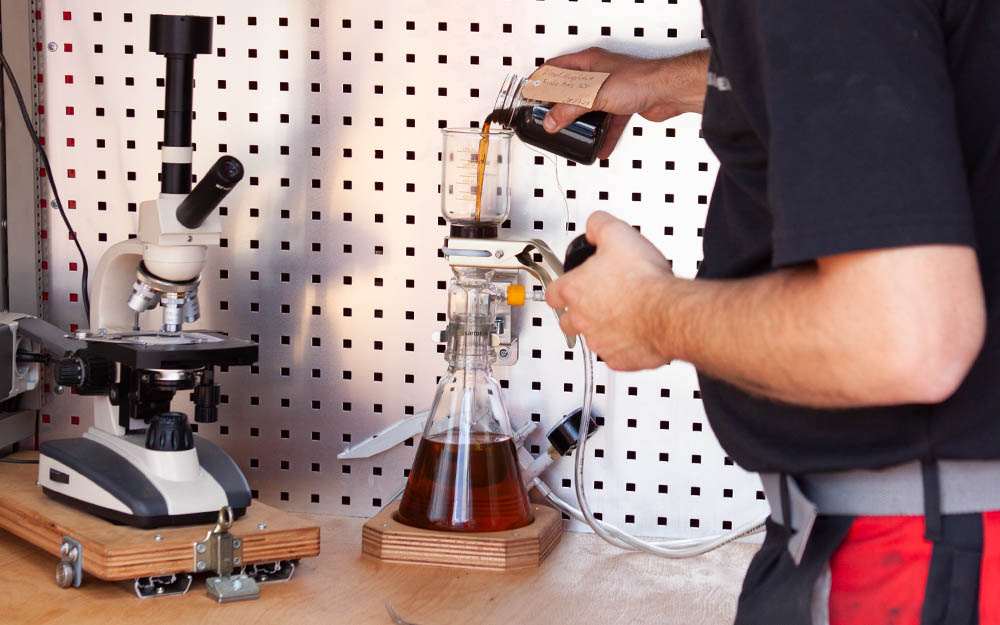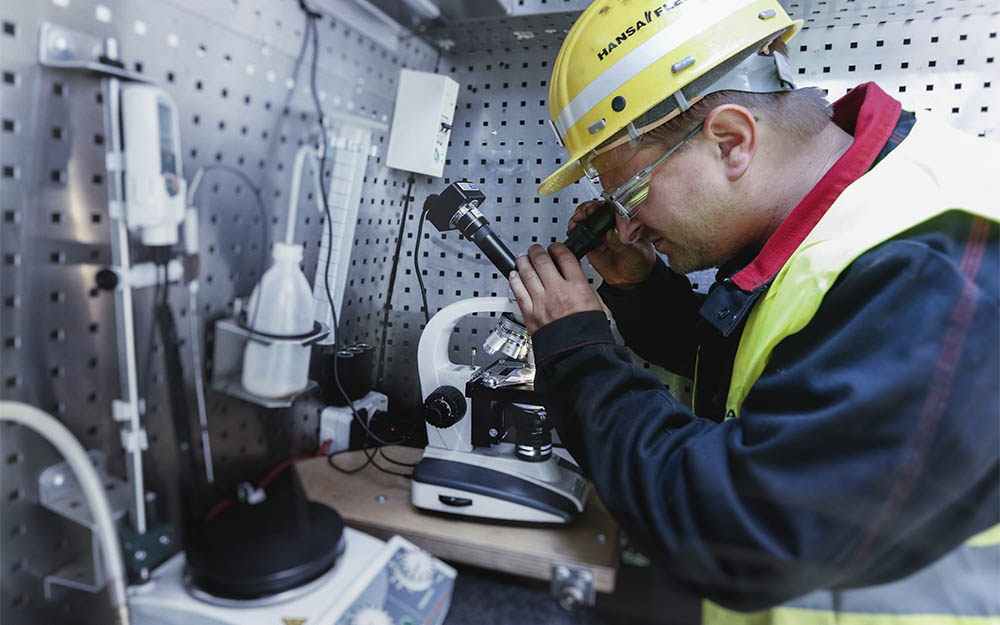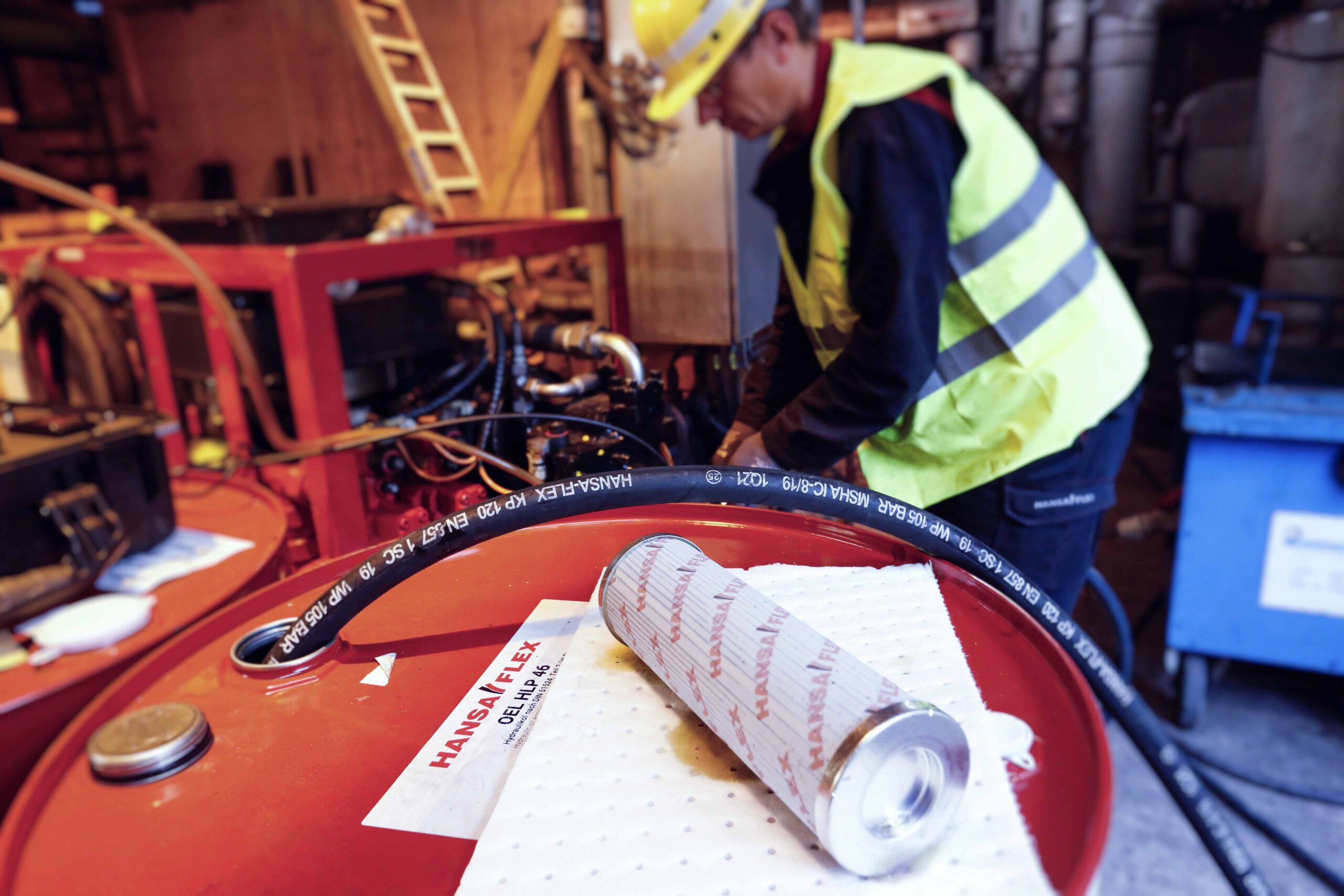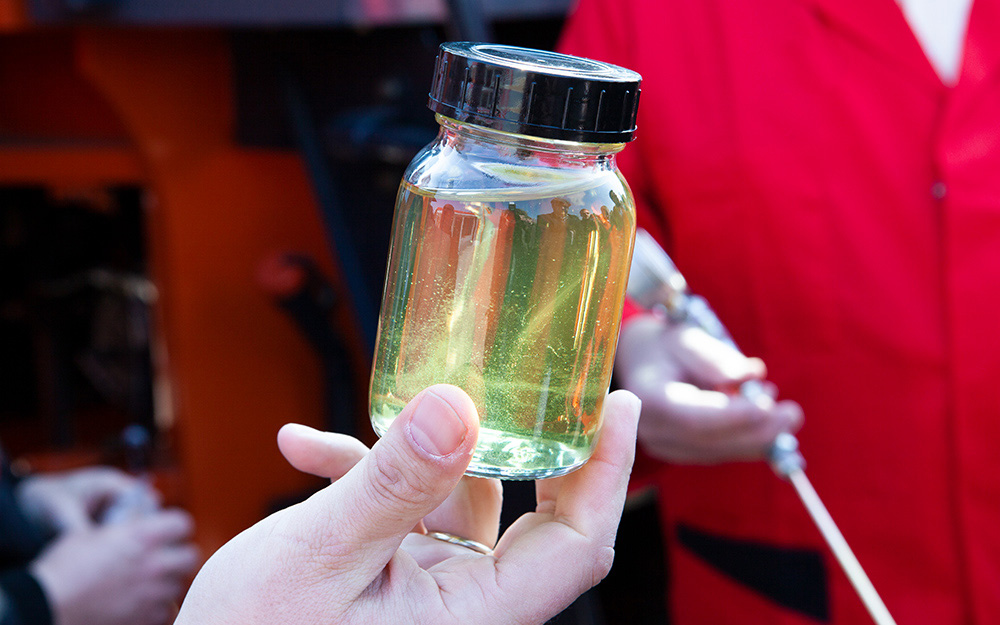
Everything oil has to do
Hydraulic oil has to withstand high stresses. The standard for pressure fluids, DIN 51524, specifies the minimum requirements for hydraulic fluids. Other requirements are:
- Shear stability (resistance to changes in viscosity)
- Filterability
- Low hygroscopicity (the tendency of an oil to absorb water) and resistance to thermal loads

 Türkçe
Türkçe

